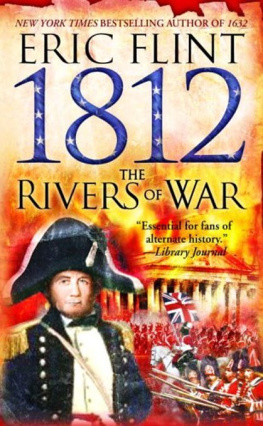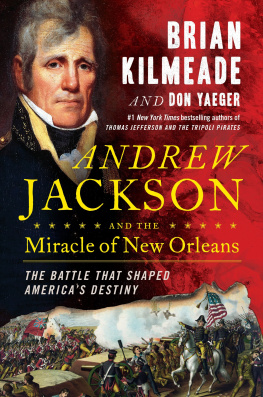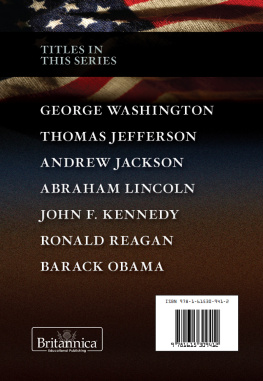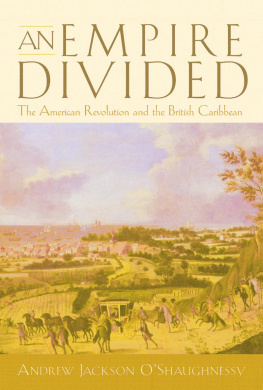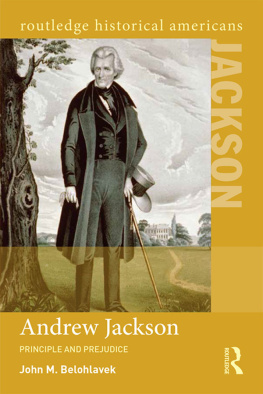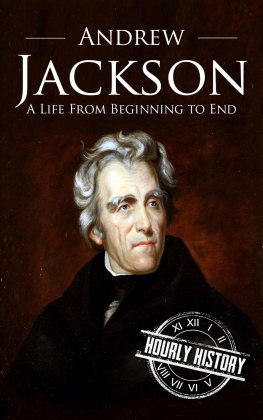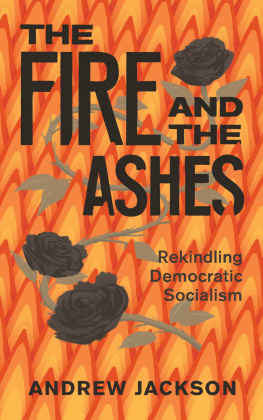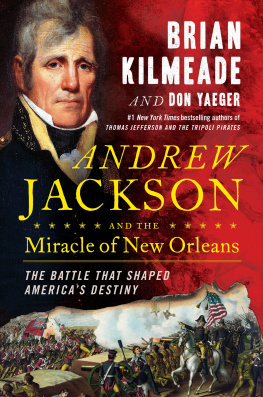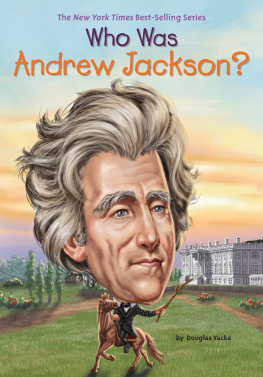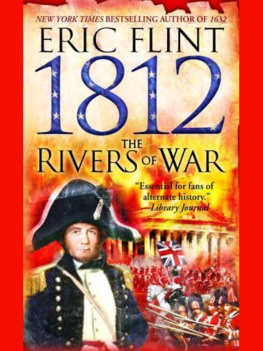1812
The Rivers of War
by
Eric Flint
2006

All Your Books Are Belong To Us !
http://c3jemx2ube5v5zpg.onion
1812
The Rivers of War
Copyright 2006 Eric Flint
In the War of 1812, U.S. troops are battling the British on the Canadian border, even as a fierce fight is being waged against the Creek followers of the Indian leader Tecumseh and his brother, known as The Prophet. In Europe, Napoleon Bonaparte's war has become a losing proposition, and the British are only months away from unleashing a frightening assault on Washington itself. Fateful choices are being made in the corridors of power and on the American frontier. As Andrew Jackson, backed by Cherokee warriors, leads a fierce attack on the Creek tribes, his young republic will soon need every citizen soldier it can find.
What ifat this critical momentbonds were forged between men of different races and tribes What if the Cherokee clans were able to muster an integrated front, and the U.S. government faced a united Indian nation bolstered by escaping slaves, freed men of color, and even influential white allies
Contents
To Quatie, who gave her blanket
Dramatis Personae
American Characters
JOHN QUINCY ADAMS: U.S. negotiator at the peace talks with the British being held in the Belgian city of Ghent; son of John Adams, the second president of the United States.
JOHN ARMSTRONG: U.S. secretary of war.
CHARLES BALL: Freedman; U.S. Navy gunner.
JOSHUA BARNEY: Commodore, U.S. Navy.
JACOB BROWN: U.S. general in command of the Army of the Niagara.
JOHN COFFEE: A close friend and associate of Andrew Jackson, as well as his top subordinate officer.
HENRY CROWELL: Freedman; teamster, owning his own wagon.
PATRICK DRISCOL: Sergeant, U.S. Army.
SAM HOUSTON: Ensign in the Thirty-ninth U.S. Infantry; adopted son of the Cherokee chief John Jolly; his Cherokee name was Colonneh, which means The Raven.
ANDREW JACKSON: Commanding general of the Tennessee militia; later, major general in the regular U.S. Army, in command of U.S. forces in the southern theater in the War of 1812.
FRANCIS SCOTT KEY: Lawyer and poet.
MARIE LAVEAU: New Orleans voudou queen.
JAMES MADISON: President of the United States.
ANTHONY MCPARLAND: Private, U.S. Army.
JAMES MONROE: U.S. secretary of state.
LEMUEL MONTGOMERY: Major in the Thirty-ninth U.S. infantry; personal friend of Andrew Jackson.
DAVID MORGAN: Brigadier general; commander of U.S. forces on the west bank of the Mississippi River in the New Orleans campaign.
DANIEL PATTERSON: Commodore, U.S. Navy; in command of American naval forces during the New Orleans campaign.
JOHN PENDLETON: Corporal in the Baltimore United Volunteers, a militia dragoon unit.
JOHN REID: Andrew Jackson's aide.
WINFIELD SCOTT: Brigadier general, U.S. Army; Brown's top subordinate officer.
WILLIAMS SIMMONS: Accountant, formerly employed in the War Department.
WILLIAM WINDER: Brigadier general, U.S. Army, in command of the defense of Washington, D.C.
Indian Characters
A. RIDGE: A major Cherokee chief; took the name Major Ridge after the battle of the Horseshoe Bend.
JAMES AND JOHN ROGERS: Tiana Ross's half brothers, nephews of chief John Jolly.
CAPTAIN JOHN ROGERS: Father of Tiana, James, and John; although a Scots-American, he was an informal member of the Cherokee tribe and adviser to John Jolly; his nickname was Hell-Fire Jack.
TIANA ROGERS: Niece of Cherokee chief John Jolly.
JOHN ROSS: Young Cherokee leader; very influential in the tribe, although not a chief.
SEQUOYAH: Cherokee warrior; developer of the Cherokee written language.
NANCY WARD: Leader of the Cherokee women's council, holding the title of Ghighua, War Woman or Beloved Woman.
WILLIAM WEATHERFORD: Principal war leader of the Red Stick faction of the Creeks during the Creek War; also known as Chief Red Eagle.
British Characters
SIR ALEXANDER COCHRANE: Vice admiral, in top command of Britain's operations against the U.S. south of Canada. GEORGE COCKBURN: Rear admiral, British navy.
SAMUEL GIBBS: Major general; Pakenham's top subordinate.
JAMES MONEY: Captain, Royal Marines.
THOMAS MULLINS: Lieutenant colonel; commander of the Forty-fourth Foot Regiment.
SIR EDWARD PAKENHAM: Major general; replaces Robert Ross as commander of British land forces in the New Orleans campaign.
ROBERT RENNIE: Colonel; commander of the Forty-third Light Infantry.
PHINEAS RIALL: Major general, commander of British forces on the Niagara front.
ROBERT ROSS: Major general, commander of British army forces in the Chesapeake Bay campaign.
WILLIAM THORNTON: Colonel, in command of the Eighty-fifth Foot Regiment.
PROLOGUE
May 30, 1806
Harrison's Mill
Logan County, Kentucky
The duel was to be held just across the state line in Kentucky. The government of Tennessee would enjoy the luxury of looking the other way. Although the illegal affair involved some of its more prominent citizens, their activities would be taking place outside its legal jurisdiction.
Kentucky would do the same, of course, simply because the perpetrators would be out of the state as soon as it was over. And they were all a bunch of cussed Tennesseans, anyway.
The first group was in high spirits as they made their way to the agreed-upon dueling ground.
Twenty-four feet, you say? asked Charles Dickinson, who was to be one of the principals in the duel. He said it with a smile on his face; as well he might, since it was a pointless question. He'd already asked it a dozen times that morning, and received the same answer every time.
Dickinson had finished reloading his pistol. He waved it toward a nearby tree. That tree looks to be standing about eight paces away. Pick a leaf, gentlemen, if you would.
His companionshalf a dozen of the gay blades of Nashville, as the newspapers liked to call themwere feeling just as festive as Dickinson. After a short and energetic wrangle, they settled upon a particular and distinctive leaf.
No sooner had they done so than the pistol in Dickinson's hand came up, quickly and smoothly. The gun fired, and the leaf fluttered to the ground. Dickinson's shot had severed the stem.
By contrast, the mood of the other party was grim.
You don't stand a chance against him, stated the principal's second, General Thomas Overton. Dickinson's probably the best shot in the whole of Tennessee.
His companion, a fellow general of the Tennessee militia, nodded silently. The nod was somewhat on the jerky side, though the man showed no sign of nervousness. His bony head was perched atop a narrow neck, which connected it to a slender body that looked to be all bone and gristle.
I'll have to take the first shot, he declared. No point trying to beat Dickinson there.
Overton winced. You may very well not survive that first shot, he observed bleakly.
The principal shrugged. Oh, I think I'll be all right. Long enough, anyway. And I don't see where I've got any choice, anyhow. I said I'd kill the bastard, and I intend to be true to my word. Whatever it takes.
The surgeon who accompanied the two generals said nothing. He didn't even wince, although he'd be the one who'd have to keep the general alive afterward, if that was possible.
There was no point in wincing. A man might as well wince at the movement of the tides.


